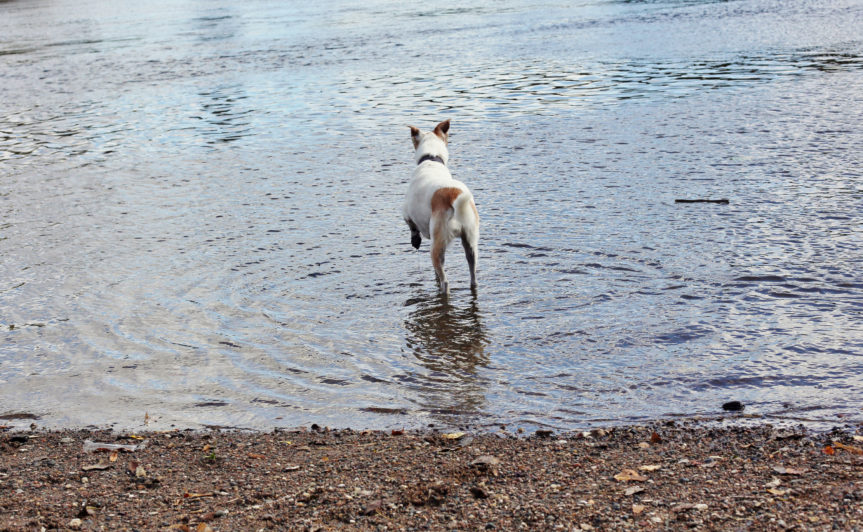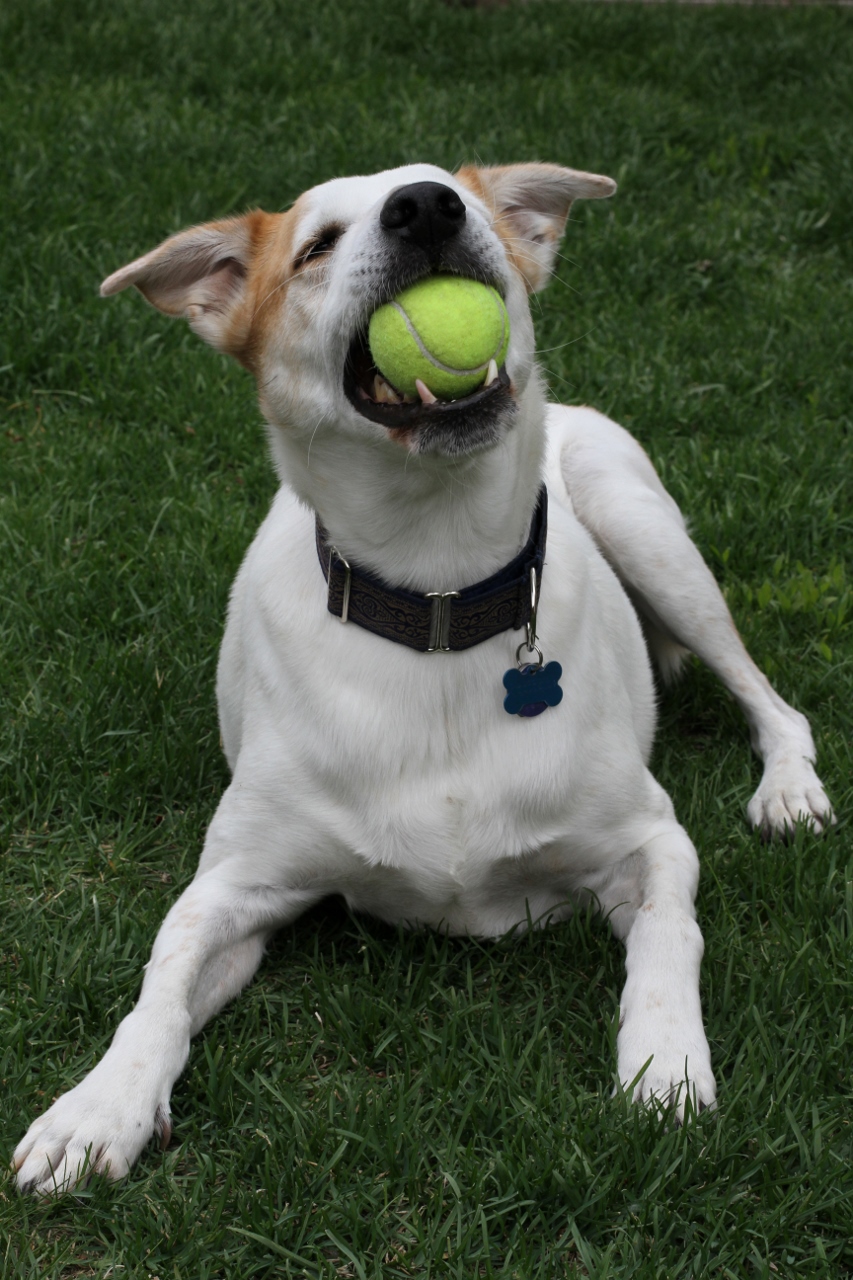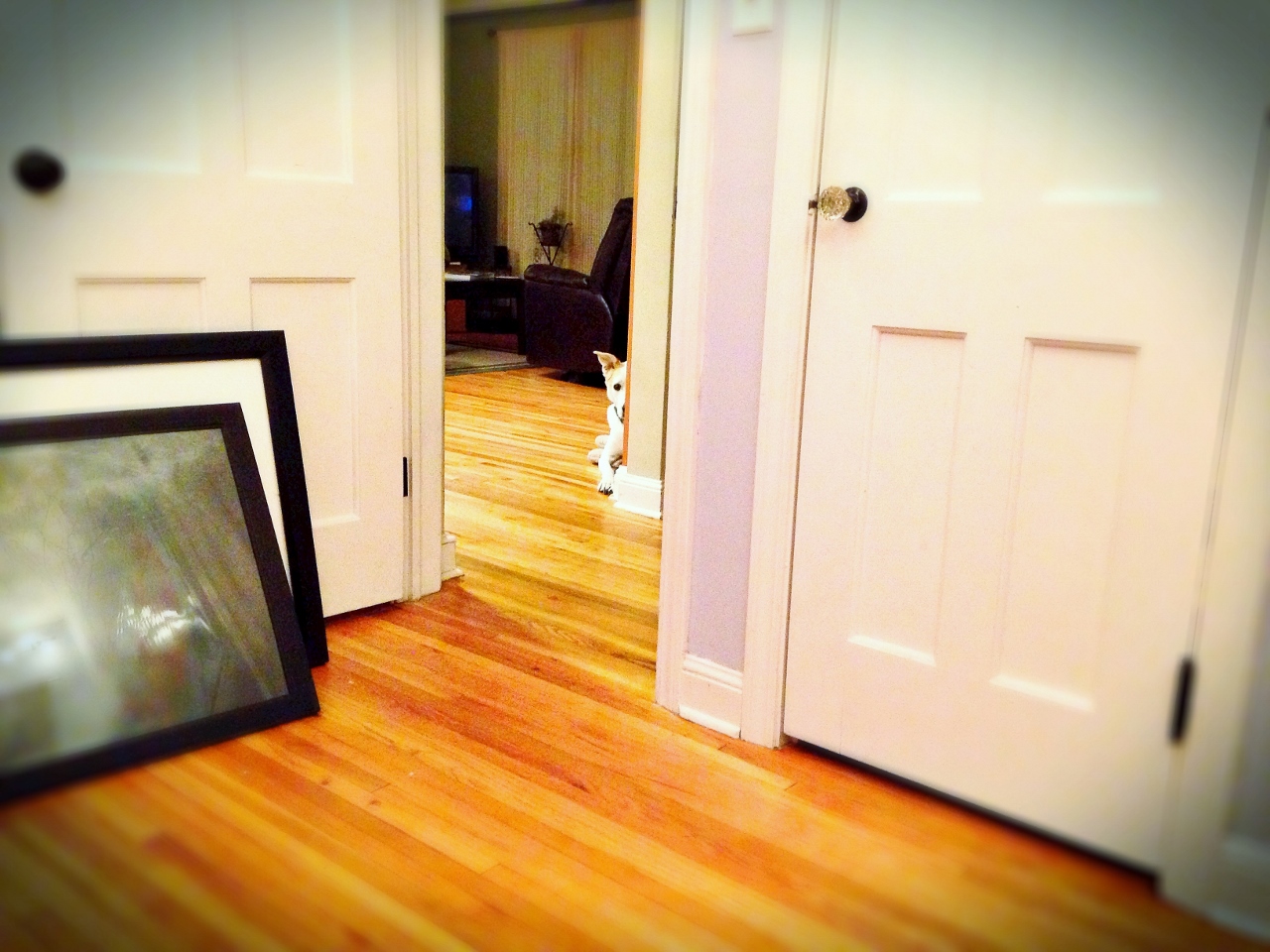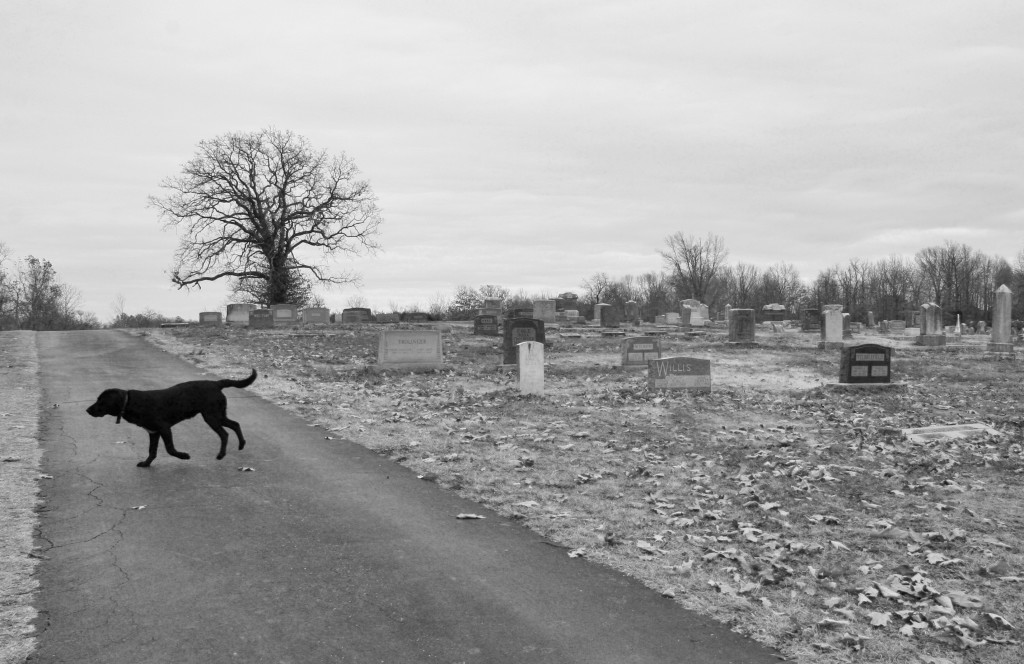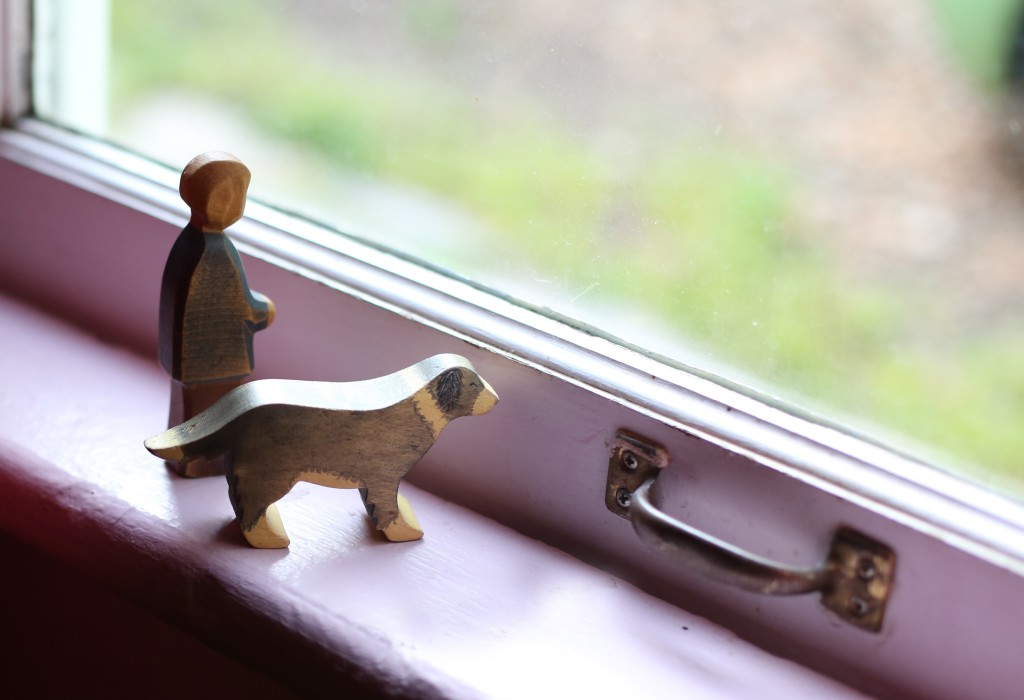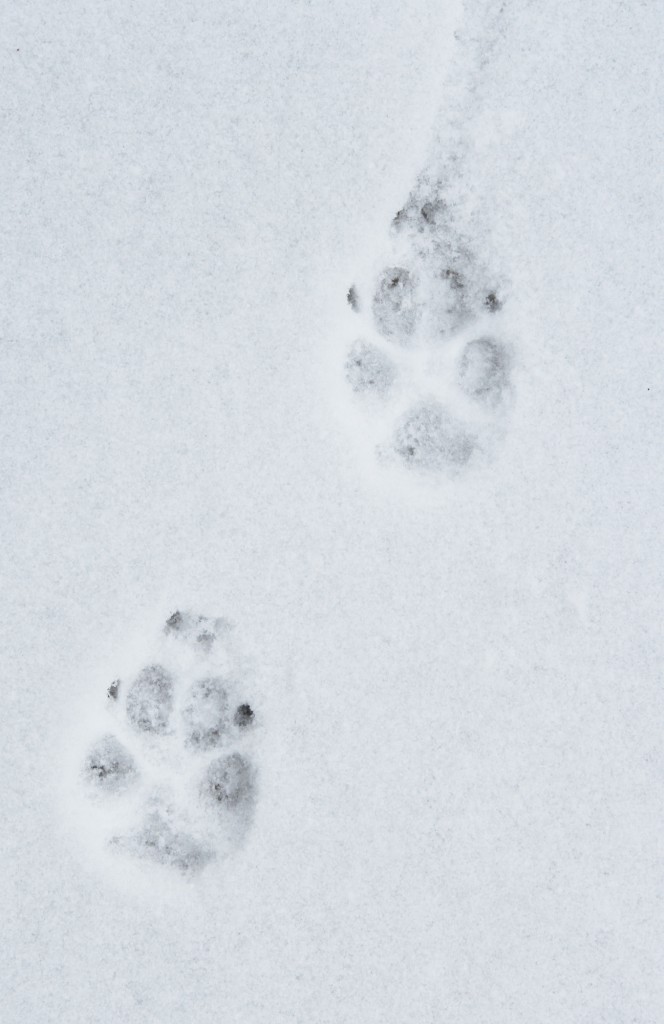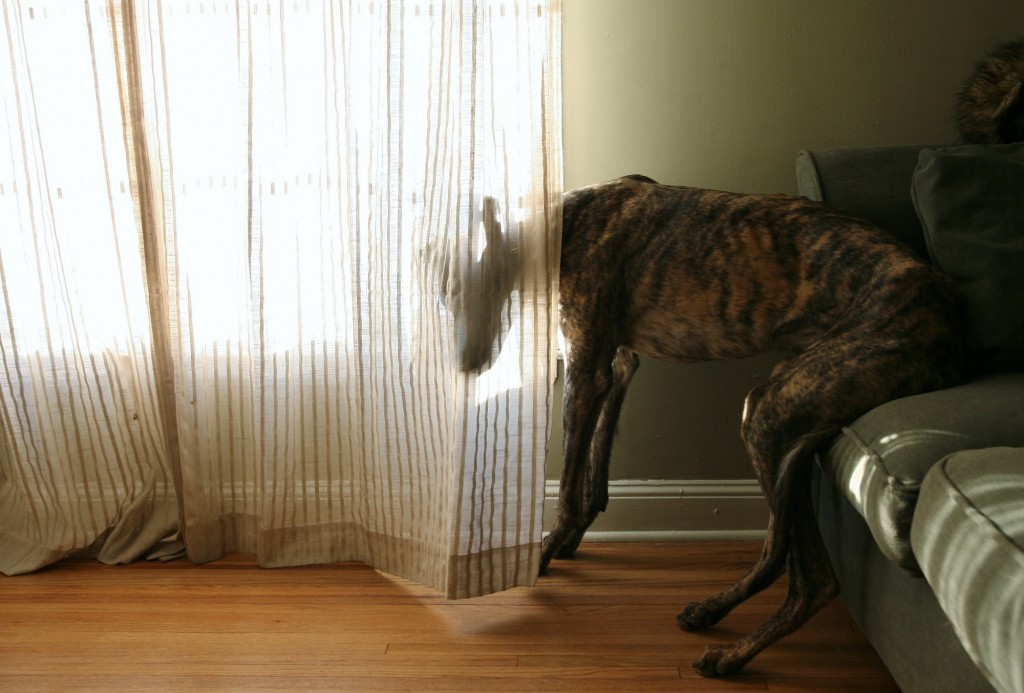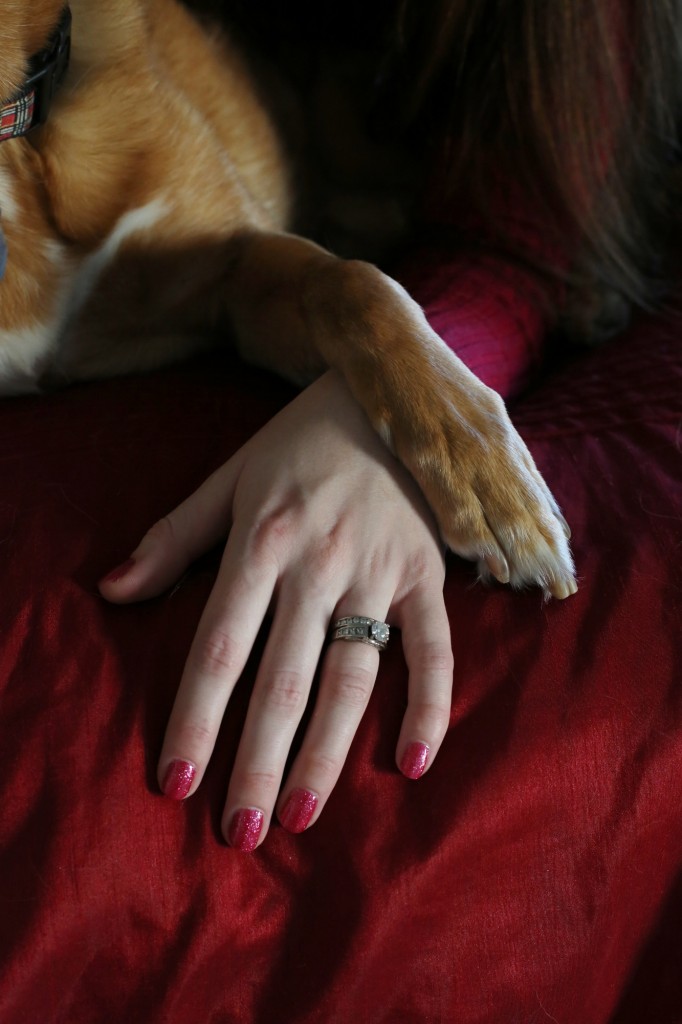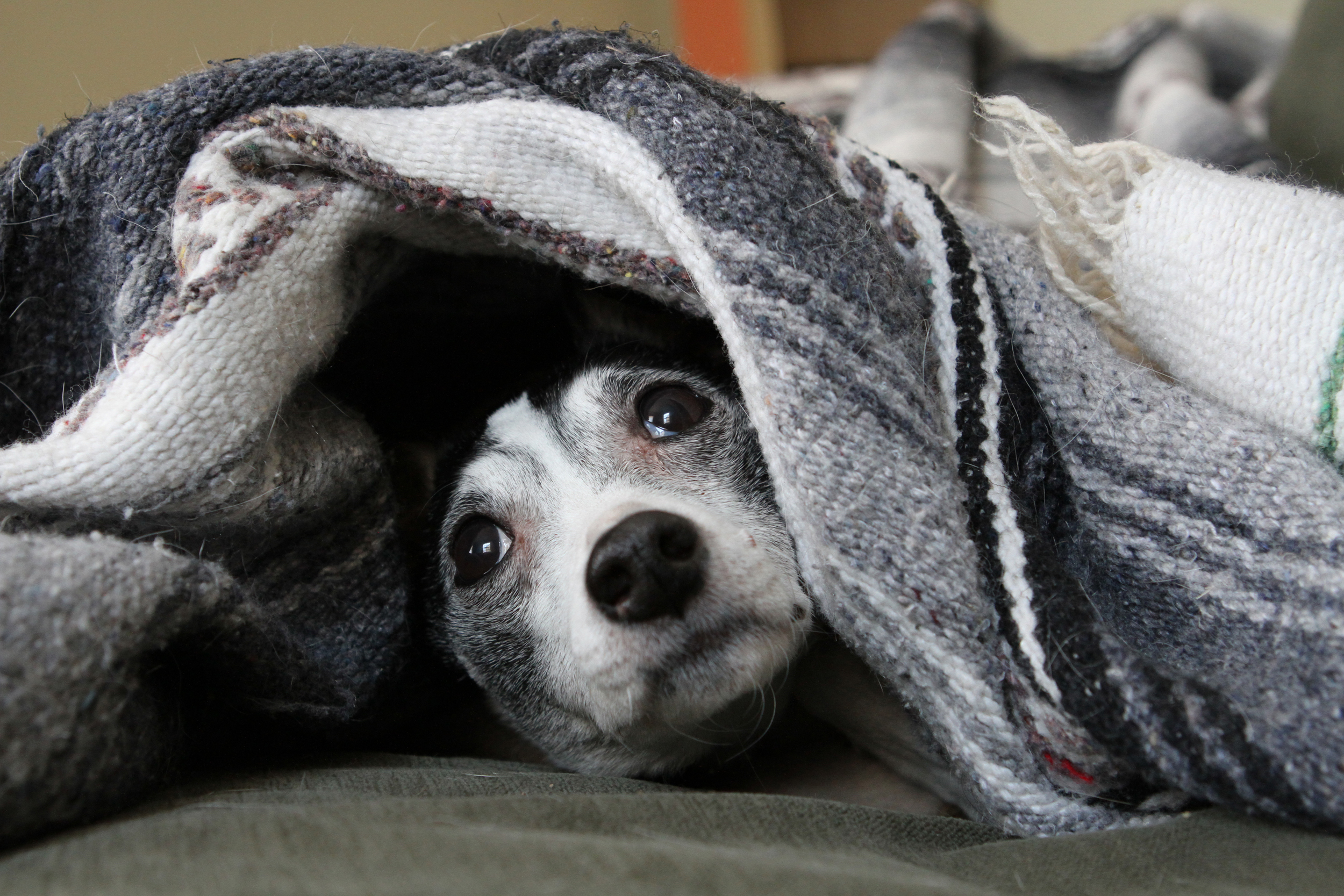
By Amy E. Robillard
My dog Hattie has anxiety. She is afraid of most things in a typical neighborhood: garage doors opening, people working in their garages, pick-up trucks, vans, school buses. She is afraid of landscapers and their trucks with all their equipment. Loud sounds scare her, so on garbage days when the wind blows hard and the trash cans blow over, she jumps. She is afraid of sudden movements, so children are especially frightening to her, especially when they are playing basketball in their driveways. But more than anything in this suburban world we live in, Hattie is afraid of roofers.
She can hear them from blocks away. The rhythmic pounding of the nail guns. Their ladders scraping against the driveway. Tail between her legs, ears pasted back on her head, she immediately begins pulling me, hard, toward the fastest route home. She enters a full-blown panic state and nothing I have tried—treats, kind words, pets and hugs—has ever gotten her out of it. She is gone to me. She is panicking.
Physiologists studying predator-prey interactions observe that the critical need to escape may explain why so much of our stress response is “built around the rapid mobilization of energy to the muscles.” Hattie is strong and she pulls me with all her might when she panics. The energy flowing to her muscles is intense, and it is evident that she is deeply afraid. My shoulders hurt for hours afterward.
On walks, I have trained myself to notice the things Hattie is afraid of, and I do so relatively quickly. We turn around and take a different route as soon as I see a landscaping truck parked in front of a house. If I notice a roofing sign or roofing materials in a yard, I avoid that street for at least four days. But I cannot anticipate it all. There are so many times when I can’t know what will frighten her. There are so many times when I’m caught off guard and her panic sets in and I’m struggling with a panicking dog who just wants to get home where it’s safe and it is all I can do to resist the tears that want to come. She pulls me so hard and the other two dogs don’t understand why we’re in such a hurry. The walk is no longer enjoyable because all we’re trying to do is escape fear.
•••
As a child and an adolescent, I was abused by my older sister. She would wander throughout the house seeking me out so she could punch me in the shoulder or hit me in the stomach. She would wait until our mother left the house and she would beat me in my bed while I tried to read a book. She would pick up the living room chair and chase me through the house, threatening to pummel me with it. She would punch me in the face until blood ran out of my nose and down my chin and onto my chest. She would call me a fat fuck and a cunt and a lesbian and a fucker and tell me that the minute Ma left the house I was dead. “I’m going to fucking kill you.”
To get to her bedroom, Margie had to walk a few steps through mine. Thinking about it now, I wonder at the builders’ thought process. Who builds a house with a bedroom that is accessible only by entering another bedroom? Aren’t bedrooms supposed to be spaces of privacy? Whenever she took those few steps from my room into hers, she spewed insults at me, and I wonder now whether she did so even when I was not there, if doing so became so habitual to her as to become nearly meaningless. Many nights I was woken by her telling me I was a fucker or a goddamn lesbian or that she was going to kill me the next chance she got. From a deep sleep, I awake to hear, “You’re dead.”
Where could I go? How could I escape? I was in my home, in my bedroom, and I was not safe. I was being hunted.
•••
I teach writing to undergraduates. My favorite genre to teach is the personal essay, so I learn a lot about their interior lives. What I have learned during the pandemic is that we are living through a mental health crisis the likes of which I do not think we have seen before. The students I’m teaching right now have never lived in an everyday not punctuated by the catastrophic. They have never known what it is to just go from year to year to year with nothing particularly interesting happening except maybe a sleepover or a birthday party on the weekend. They were born post-9/11 into a world of school shootings and lockdown drills and mass shootings and the sense that wherever they went they could be at risk of being killed by a gun. I have sometimes thought, after a mass shooting, that no place is safe, that I risk my life when I walk onto campus or into Target or the grocery store, but there’s a part of me that is still buffered from that fear. That is the part of me who grew up in a time before school shootings, the part of me who went to school and felt safe, safer than I ever felt at home. There is a foundation of years in me that the new anxiety of gun culture cannot rattle. But for the students I see every day, there is no foundation of school as safety. School is a place away from the safety of home, a place where they must practice lockdown drills, hiding with their teacher in the corner after taking a spelling test.
For me, school was my safe place away from the vigilance I felt at home. At school I could relax. At school my teachers praised me for my reading, for my math, for my speed in just about everything I did. I could turn a corner in the hallway and not worry that my sister was going to jump out and punch me. Five years older than me, she was already at a different school. I could sit in my classroom and answer questions and be told that I was right, that I was smart. I could walk to the bathroom and sit down on the toilet in peace even if there were kids all around me. I could talk and laugh with my friends and nobody was going to mock me. My sister wasn’t there. She wasn’t going to punch me, she wasn’t going to call me a fucker, she wasn’t going to jump me.
The students I teach writing to tell me they won’t be able to come to class because they can’t control their panic attacks or because they are too anxious to leave their apartments. When they write personal essays, they write about suicidal ideation and spending time in locked psych wards. They write about the truths they have learned from their therapists. They write about being bullied in elementary school. They write about the terrifying loneliness of experiencing their first years of college on Zoom, about their fears that they will never go back to being the same people they were before the pandemic, about their imposter syndrome and borderline personality disorder. They wonder what it would be like to just not be here anymore.
Or. They don’t come to class and they don’t tell me why. They just disappear for weeks at a time.
•••
We adopted Hattie when she was just under a year old. Nobody knows her actual history, but she was transported up to Illinois from Texas, where she was found with another dog. Our best guess about what her early life was like: she was born on a farm somewhere and was tossed food here and there and barely survived. We know for sure that she was not socialized. When we first met her, she would not come to either me or my husband Steve, and I have since said that I’ll never again adopt another dog who doesn’t come to me when I meet them. But we have Hattie and we love her to pieces and we thought we could work with her anxieties.
She had heartworm when we adopted her, and treating that took a lot of time, patience, and money. The foster agency had been treating her using what’s called the “slow kill” method, but that takes more than two years to complete, and during that time, the dog is supposed to be kept calm. We opted for the “fast kill” method, which was more expensive and involved injections but required less time for Hattie to be out of commission. Four months. One hundred twenty days of no walks and no playtime with Marshall, our three-year-old Beagle mix. At times it was excruciating to watch her do nothing all day long. But in October of that first year, she finally got a negative heartworm test and we were so grateful. She had made it.
Lately Hattie has refused to go on walks altogether. For more than a year after she’d been cleared of heartworm, she’d come on walks with us and, while there would be panic moments here and there and, at times, an especially bad walk where I really wondered if walks were the right thing for her, for the most part, she did just fine. But then in October, something shifted. Her panic seemed to envelop her. She became unable to control her panic even on short walks around the block. She approached each corner with trepidation, looking up to me for reassurance. Steve and I aren’t sure what broke in her, what happened to make her suddenly more afraid than she had been, but we both agreed that she suddenly got worse. She became more insecure. She became more clingy toward me. When I would get the leashes out, she would run upstairs to her crate in our bedroom. She no longer wanted to go for walks.
So I would leave her home alone and take Essay and Marshall for walks while Steve was at work. I hated leaving her alone, but I hated even more the thought of forcing her to come with us. And while on these walks with the two older dogs, I would still scan the environment for Hattie triggers. People working in their garages, making banging noises. Landscapers cleaning up for the fall. Trucks and vans with ladders on top parked in people’s driveways. I was now triggered by these things, even if just for a split second, knowing how scared Hattie would be. I’d look down at Essay and Marshall, relieved they felt no such fear.
In mid-November, we started Hattie on Prozac. She had been on a different anti-anxiety medication, but it clearly wasn’t doing its job, and we needed something stronger. I’d heard so many success stories from friends about their dogs on Prozac, and I wanted that for Hattie. I wanted calm for her. I wanted the real Hattie to come through. I wanted her to feel safe in her surroundings, to live a happy life.
About a week into her taking Prozac, I was taking a walk with Essay and Marshall when we ran into our friends Bob and Joy and their dog, Honey. Honey and Hattie are best buds and love to play together. They run around the yard chasing one another, hopping over each other, mouthing and barking at each other in ways that never fail to make us laugh. The Prozac hadn’t yet taken effect, and Hattie was not doing well, which is why she wasn’t on the walk, and she hadn’t been out in days. I asked Bob and Joy if they wanted to bring Honey around to the yard to play with Hattie. I thought Honey and Hattie could play together like they always did.
The outdoor furniture had been put away weeks earlier, but it was relatively mild out, so all four of us adults—Bob, Joy, Steve, and I—stood out on our patio and watched and waited for the dogs to play. Marshall played with Honey a little bit, but Hattie just sort of sat on the patio sunken in on herself. Ears back, shoulders hunched, she looked like she wanted to be anywhere but here. She looked like an abused animal. She went back inside while we all stood there not knowing what to say. I am hoping that was her lowest point. I had never seen her look so sad.
•••
I write now, as Hattie is between anxiety medications and my students are still living through a pandemic that so many people have grown tired of, in order to understand the ways I am ill-equipped to help either Hattie or my students. How can I, a person who grew up feeling like she was hunted in her own home, help Hattie feel more secure or help my students feel able to face the world? I have come to realize in the last year or so that my sister’s constant seeking me out in order to attack me has led to what I once thought were just quirks of character but I now understand to be direct results of feeling constantly hunted. For instance, I am triggered by too many people wanting too many things from me at one time. I do not like to begin projects with other people that do not have foreseeable ends, that threaten to drag on interminably. I tend to check things off my to-do list diligently. I get students’ work back to them pretty quickly. I like, in short, to know that things will end, and I do my best to facilitate that end. Semesters are a good fit for me, then, as each January and each August I get to start again, knowing that, however chaotic the semester may get, it will be over in May or December. And then I get to start again.
I knew that as long as I was home, my sister would never stop hunting me. There was no end. Now all I want is an end to things.
I want things to end so I can be left alone.
Leave me alone.
That is the story of my life: leave me alone. I want to read and I want to write and I want to do my own thing away from the feeling of being constantly hunted. That feeling has followed me everywhere I’ve gone my entire life. I don’t know how to shake it.
•••
In the fall of 2020, I taught an advanced writing course focused on the theme of “witnessing the suffering of others.” We read a number of personal essays and longform journalism pieces about, well, the suffering of others and what it meant to witness it as part of simply watching the news. This was following the summer during which none of us could look away from the suffering of others; it was the summer of George Floyd. It was the summer following Ahmaud Arbery and Breonna Taylor. It was the summer of Black Lives Matter protests all over the world. And it was the first summer of the pandemic. The teaching and learning we did together happened on Zoom rather than in a classroom. Together we considered what it means to look, what it means to look away, who is required to look, and who has the privilege to look away. We read essays about suffering and witnessing that suffering, and we analyzed those essays and students wrote about their own witnessing and we talked about that writing. We talked and wrote a lot about suffering—others’ and our own—and we considered the relationship between seeing and knowing. It was, to put it mildly, intense. Many of us were tired after each class session. John Scott Price, a psychiatrist, advises his patients to avoid the news and he advises his patients’ families to protect the patient from the “horrors of contemporary life.” His patients with anxiety, he writes, only become more anxious with the arrival of endless bad news from daily reports of tragedies, so his advice is to avoid the news and watch sports and nature programming instead. I tend to do the very opposite with my students, many of whom I know suffer from anxiety. I tend instead to bring the real world into the classroom, as I did in fall 2020, insisting that we look together at the world we’re living in. Though I suspect I am making things worse for them, I don’t know how to teach any other way.
•••
Anxiety is the feeling that the bad things will never end. It’s the feeling of danger around every corner. Anxiety is future oriented, but it forestalls our ability to imagine a present for ourselves. When Hattie is in a panic, she is not living in the present; she is, instead, aiming to get as far ahead as she can, trying to get out of the moment she’s in, wishing for the fear to end.
She just wants the fear to end.
I want to know when Hattie’s anxiety will end. I want to know how long until the Prozac kicks in, until we can see some improvement.
Little things: after being on Prozac for exactly two weeks, Hattie took a long afternoon walk for the first time in a month. Later that evening, she snuggled up to Steve on the couch. She had never done that before, not once in the entire eighteen months since we’d adopted her. She would come up to him and kiss his face or kiss his hands but never had she snuggled up to him for a nap.
Students in this semester’s personal essay class suggested that maybe—just maybe—I think about including a few more essays that aren’t directly about death or dying. And so I will. I am. One student pointed directly to Seth Sawyers’ essay, “That There, That’s Not Me,” as the kind of thing she’d like to read more of. “Nobody dies. It’s an essay about a guy who doesn’t love his job.” Students seem to agree that the most emotionally difficult essay we read together was Sam Pickering’s “George.” That slayed me, they say. I had to call home and FaceTime with my dog, they tell me. In “George,” Pickering writes about and against his emotional reactions to the impending death of his fourteen-year-old dog, George. “But it’s so good,” I tell them. “The entire essay is one big psychic defense against feeling anything for his dog. I have to include that one.” They sigh.
I think bringing stories of bad news into school comforts me somehow, as though my taking them out of their original contexts and sharing them with students in ways that make them into objects of analysis dilutes their impact. Maybe it’s because school is a safe space for me and I grew up learning that intellectualizing was one way to tamp down the panic. If we can cut it up into its parts, maybe the news will be less terrifying.
•••
As I’m working on this essay, news of yet another school shooting reaches me, this time in Oxford, Michigan, a suburb of Detroit. Four students are dead, six students and one teacher are wounded, and a fifteen-year-old student is in custody. We know, immediately, what kind of gun he used, but we don’t know where he got it. All of the news stories search for a motive. Was he bullied? Does it matter?
A student posts a video to Tik Tok from inside a classroom in Oxford High. The room is dark and students are all huddled together. A muffled voice comes to them from the locked door, asking them to open up, to come outside; they are safe. He identifies himself as a sheriff. “We’re not willing to take that risk right now,” one of the students in the classroom responds. The person outside the door says something else and punctuates it with “bro.” “He said, ‘Bro.’ Red flag,” says a student from the huddle. And then we see them all escape the classroom through a window.
The video makes me heartsick. I see these students climb through the window to safety, and I think of my own students. I think of the terror these students must have been feeling and of the wherewithal it took to record it for us all to see. I am unable to intellectualize what I am seeing. I instead fall deeper and deeper into despair, wondering how any parent can bear to send their child to school, wondering how teachers come to terms with the fact that the student whose work they were just reading is now dead or even worse, was the shooter. How do you make sense of the senseless?
Watching that video, too, makes me realize that it’s not just that students have lived in a world with catastrophe after catastrophe their whole lives. They, too, have lived in a world in which they feel hunted even when they are in school. If this is true, of course they want school to end. Of course they want to know how to get out of it. Of course they want their futures to begin now. Of course. Of course.
They just want the anxiety to end.
•••
On the last day of the personal essay course this semester, I asked students how they felt about reading and discussing essays such as Jo Ann Beard’s “The Fourth State of Matter” and Jasminne Mendez’s “Lesson Plan: This Is Not a Drill,” both of which foreground school shootings. I wanted to know if I was adding to their existing anxiety. What they told me surprised me. The anxiety is already there, they said. The essays aren’t creating more anxiety. What they’re doing instead is giving us a chance to talk about it. In all their years of schooling and all their years of practicing lockdown drills, nobody has ever asked them how they feel about them. About it. About the prospect of dying at school. They’ve never had a chance to talk about it. The essays give them a chance to talk about it.
They also tell me about how, in each classroom they enter, they mentally make an escape plan.
They want to know how to get out safely. They want the fastest route home.
•••
AMY E. ROBILLARD is a writer and a professor of English at Illinois State University. Read more of her FGP essays.

 Follow
Follow
